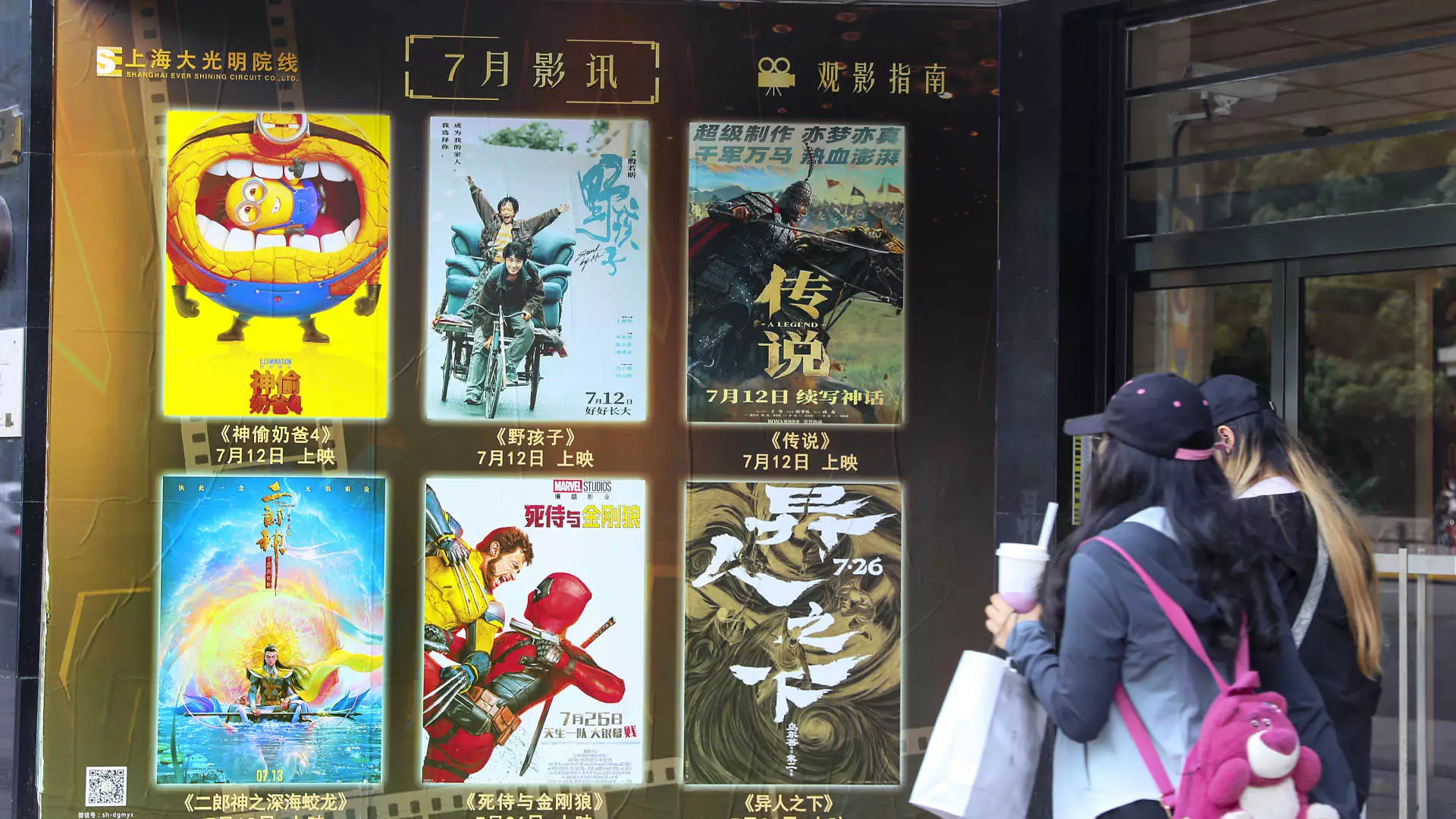As the throes of President Trump’s trade war with China intensify, Hollywood finds itself in precarious waters, grappling with repercussions that are reshaping the entire landscape of filmmaking and distribution. The Chinese government’s decision to restrict the number of Hollywood films showcased in its theaters is a seismic shift that has caught many industry giants, including Disney and Warner Bros. Discovery, off guard. Once heralded as the golden ticket to blockbuster success, the Chinese market has morphed into a quagmire of uncertainty, with American studios now witnessing an abrupt decline in ticket sales that fundamentally alters their financial forecasts.
The loss of influence in this lucrative market represents more than just a fiscal dip in stock prices; it evokes a larger narrative about the thin veneer of global Hollywood dominance. Once upon a time, studios tailored their productions to cater to this insatiable audience, crafting narratives and special effects that would resonate across cultural divides. With China’s aggressive growth in local films and production capabilities, the curtain is drawn on this era of American cinematic supremacy, as homegrown narratives gain traction amid a rapidly evolving cinematic landscape.
Turning Tides: The Rise of Domestic Fare
As Ann Sarnoff, the former CEO of Warner Bros., rightly points out, the Chinese film industry is no longer the quaint sibling yearning for Hollywood’s attention; it has come into its own, creating robust cinematic endeavours that are now preferred by local audiences. The prioritization of domestic productions signifies a deeper cultural shift—one rooted in national pride and an unwavering desire for representation. As films like “Ne Zha 2” shatter box office records typically reserved for their American counterparts, it’s evident that the allure of Hollywood is fading, replaced by narratives with which the Chinese audience can genuinely resonate.
The repercussions of this trend go beyond mere ticket sales. With the expiration of the U.S.-China Film Agreement in 2017, which once guaranteed a flow of American films into one of the world’s largest consumer markets, studios are left with a precarious model that may no longer support the budgets required for blockbuster filmmaking. The dynamics have shifted so drastically that many studios are now projecting a near-zero contribution from the Chinese market in their earnings estimates—an unimaginable deviation from the past.
The Financial Fallout: Currency and Creative Constraints
Moreover, the weakening of the dollar has compounded the challenges faced by Hollywood. An unfavorable exchange rate means that box office returns from foreign markets could dip even further while simultaneously escalating the expenses of production and marketing. The volatility of the stock market, influenced by rapid trade decisions, adds another layer of complexity. Critical decisions that were once predicated on a steady influx of revenue from international audiences are now fraught with uncertainty, leading to second-guessing and caution among executives.
Hollywood executives find themselves in uncharted territory, where every strategic decision could yield unpredictable consequences. Do they adapt to local tastes, investing in co-productions, or do they cling to the familiar formula that made them successful? The cost of inaction could be the erosion of an industry that once set the global standard for entertainment. The stakes have been dramatically raised, and the landscape is changing at a pace that’s challenging for seasoned players to navigate.
Future Prospects: Navigating a Changing Industry
As we analyze these emerging dynamics, it becomes clear that the next chapter for Hollywood hinges not only on the resolution of trade disputes but also on its capacity to innovate and evolve. The industry’s survival may depend on developing films that not only entertain but also resonate across diverse demographics, catering to different cultural narratives without sacrificing the integrity of storytelling.
In this powder keg of a trade war, Hollywood has a choice to make: Will it adapt and thrive in new markets, or will it remain shackled to a bygone era of creativity that no longer guarantees success? The answers are as unpredictable as the stock market, and only time will tell if Hollywood can emerge from this conflict unscathed or if it will become just another cautionary tale in the annals of cinematic history.

